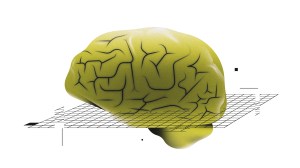In this series

Theologians have historically identified several markers concerning what it means to be made in the image of God: rationality, the capacity to love, and the state of human righteousness before the Fall.
“It has proved all too easy in the history of interpretation for this exceedingly open-ended term ‘the image of God’ to be pressed into the service of contemporary philosophical and religious thought,” writes biblical scholar David J. A. Clines.
Today, we wrestle with the term anew given the technological landscape of nearly autonomous robots and large language models (LLMs). In many ways, we are asking what it means to be human. Particularly as generative artificial intelligence gains ground, we might start to question our place in the world. Can we have interpersonal relationships with ChatGPT? If we lose our jobs or our craft to artificial intelligence, do we drop down on the societal food chain?
Our questions aren’t just about our work but about theology and ethics. As Christians, we must ask what role intelligence plays in the imago Dei and whether AI is truly intelligent. We are not God, animal, or machine. Much of our world is set up for us to live less humanely, so how do we think about imaging God in an increasingly technological world?
For our July/August print issue, CT invited a software engineer, a researcher, a tech entrepreneur, and a professor to consider how we define intelligence—whether in mathematical calculations, our ability to love, or our ability to know experientially.
We are human, after all.
Kara Bettis Carvalho is ideas editor at Christianity Today.


















